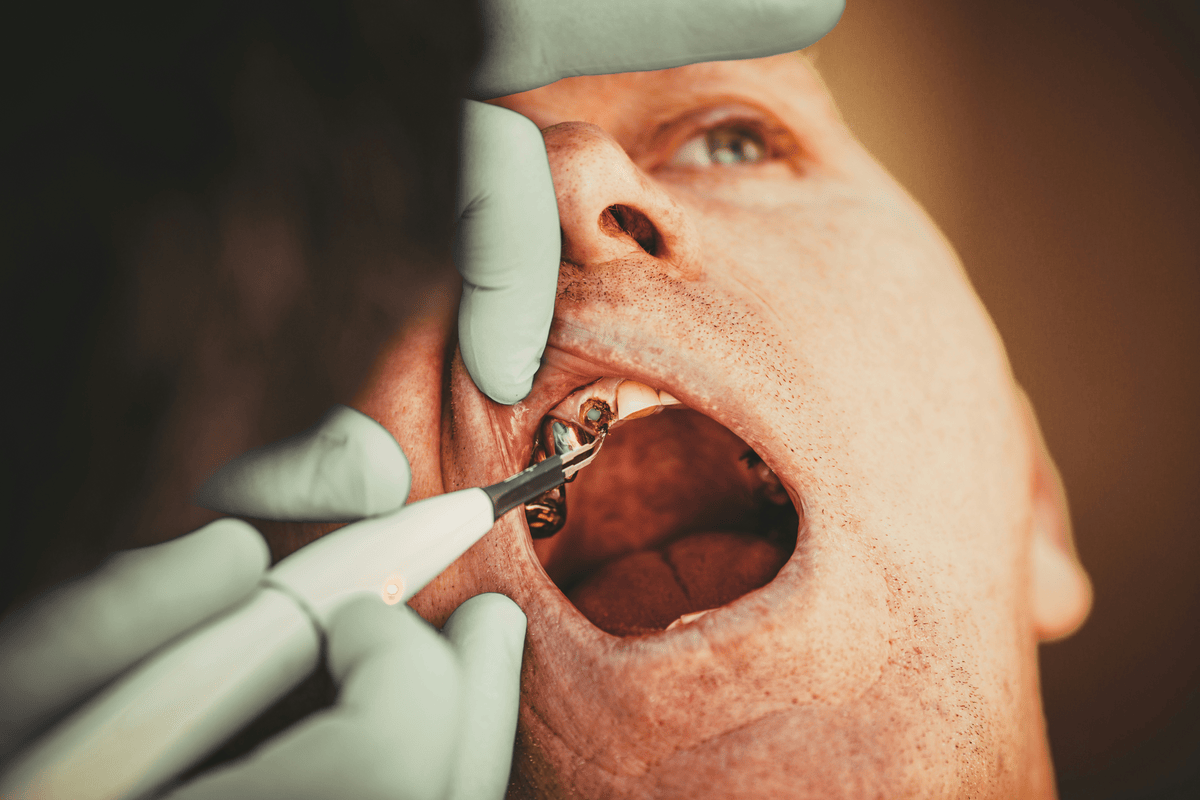Introduction to Nerovet AI Dentistry
Computers improve dental care. Nerovet AI Dentistry is a tool that supports dentists using intelligent technology. It analyzes dental images and helps quickly identify problems. This article explains everything about Nerovet AI in 2025. My name is Teresa Domingo. I’ve been writing about health and technology for four years. I studied AI in dentistry to provide you with clear and concise information. I want to help you understand what Nerovet AI does, how much it costs, and what can go wrong. This article provides you with all the information you need in a nutshell. It’s aimed at anyone who wants to learn about AI in dentistry—whether patients or dentists. Learn more about Nerovet AI’s features, pricing, risks, and more.
What is Nerovet AI Dentistry?
Nerovet AI Dentistry is an intelligent computer tool for dentists. It analyzes x-rays, photos, and patient records. It helps dentists quickly identify problems such as cavities or gum disease. It also offers ideas for tooth corrections and predicts possible future problems. It’s not a robot that replaces dentists, but rather an assistant that makes their work easier. The tool uses machine learning, a type of AI that learns from a large amount of dental information. It analyzes patterns to make intelligent estimates. For example, it can detect cavities on an X-ray that a dentist might miss. Dentists use Nerovet AI in their practices to optimize treatments.
Nerovet AI is unique in that it is used exclusively in dentistry. It assists with tasks such as reading X-rays, planning braces, or early detection of oral cancer. Let’s take a closer look at its features.
Main Features of Nerovet AI Dentistry
Nerovet AI offers numerous tools to assist dentists. These are the key features:
Image Review: Nerovet AI analyzes X-rays, 3D scans, and photos of the mouth. It detects problems such as cavities or gum disease. According to studies, AI has a 95% accuracy rate in detecting cavities. This is better than some dentists, especially for minor problems.
Treatment Ideas: AI offers ideas for dental treatment. For example, it suggests how to repair a broken tooth. These ideas are generated based on your dental history and health status.
Future Predictions: Nerovet’s AI predicts future dental problems. It takes into account things like what you eat or how you brush your teeth. This allows dentists to prevent problems before they occur.
Patient Consultations: AI supports dentists with explanations. It can display an image of your teeth and the treatment, making your treatment easier to understand.
Consultation Support: Nerovet’s AI takes over tedious tasks like scheduling appointments or documentation, allowing dentists to spend more time with you.
While these tools sound great, other AI systems do similar things. Nerovet is special because it was developed specifically for teeth. However, it’s not perfect. We’ll discuss the problems with these systems later.
How Nerovet’s AI Improves Dental Care
Nerovet’s AI improves dental visits in several ways. First, it speeds up problem detection. AI quickly highlights problems on X-rays, so you spend less time in the office. For example, a dentist in California reported that Nerovet’s AI reduced diagnosis time by 30%.
Second, it detects problems early. AI can detect small signs of problems like gum disease or early-stage oral cancer. Early detection facilitates treatment and keeps you healthier. For example, AI can identify oral cancer risks by analyzing the bacteria in your mouth.
Third, it enables more tailored treatment. AI analyzes your health to suggest the optimal treatment. If you need braces, it predicts tooth movement. This leads to fewer visits and better results. Dentists who use Nerovet’s AI report having their braces adjusted less often.
Finally, it increases your trust in your dentist. AI shows clear images or explains risks in a simple way. You understand what’s wrong and how to fix it. This will make you feel more comfortable during your visit.
Nerovet is great for prevention and custom care. But smaller offices might choose cheaper tools like Denti.AI. Patients should ask their dentist which tool they use and why.
These trends show AI is important in dentistry. Nerovet AI fits these trends, but it’s just one part of dental care.
How much does Nerovet AI Dentistry cost?
The price of Nerovet AI is not publicly disclosed. Dental practices typically pay for it, not patients. Here’s what we know from observing trends in dental technology:
Monthly fee: Most AI tools like Nerovet charge a monthly or annual fee. Dentists may pay $500–$2,000 per month, depending on the features used.
Equipment costs: Dentists need specialized cameras or scanners for Nerovet AI. These can cost $10,000–$50,000.
Training costs: Dentists and staff must learn how to use the AI. Training can cost $1,000–$5,000 for a practice.
Patient costs: You won’t see an “AI fee” on your bill. However, AI-based treatments can be more expensive. For example, a dental implant might cost $3,000 instead of $2,500 thanks to AI.
These are estimates based on similar tools. Prices depend on the size and location of the dental practice. I’ve used trends in dental technology to give you a clear overview. If you’re a patient, ask your dentist if AI tools will increase your bill.
Risks and Issues with Nerovet’s AI Dentistry
Nerovet’s AI is helpful, but it also has issues. Here are the main risks:
Unreliable Data: The AI needs clear x-rays or medical records to work properly. If the data is blurry, it can make mistakes. For example, it could miss a cavity or suggest the wrong treatment.
Trust Issues: Some people don’t like computers helping with healthcare. They fear the AI might miss something a dentist would see. Dentists need to explain AI clearly to build trust.
Data protection risks: Nerovet’s AI uses your x-rays and medical records. If the data is not stored securely, it can be shared with third parties. Dentists must adhere to strict data protection regulations to protect you.
No dentist: AI cannot replace dental care. It lacks human contact, such as reassurance for anxiety. Dentists make the final decision, not the AI.
High costs: The cost of AI tools can be challenging for small dental practices. This could lead to only large clinics using Nerovet AI, preventing some patients from using it.
Learning time: Dentists need to learn how to use the AI. If they are not well trained, they can make mistakes.
This article explains the advantages and disadvantages to help you understand.
Nerovet AI vs. Other AI Tools for Dentists
Nerovet AI is not the only AI for dentists. Tools like Pearl’s Second Opinion and Denti.AI perform similar work. Here’s their comparison:
Accuracy: Nerovet AI has a 95% accuracy rate for cavity detection, close to Pearl’s 94%. Denti.AI is better for scheduling appointments but less effective at problem detection.
Focus: Nerovet AI is exclusively for dentistry. Other tools are suitable for the entire healthcare system. Therefore, Nerovet is better suited for braces or implants.
Ease of Use: Dentists describe Nerovet’s system as easy to use. Other tools like Pearl require more training.
Cost: Nerovet’s price is comparable to other AI tools. Pearl might cost $1,000 per month for mid-sized practices.
Nerovet is great for prevention and personalized care. However, smaller practices may opt for less expensive tools like Denti.AI. Patients should ask their dentist which tool they use and why.
Nerovet AI and Dental Trends 2025
Dentistry is changing dramatically in 2025. AI plays a major role in this. Here are the trends that Nerovet AI fits into:
Individualized care: Dentists use AI to tailor treatments to you. Nerovet AI reviews your health and habits to suggest the optimal treatment.
Detect problems early: AI helps identify problems before they become serious. Nerovet’s tools detect risks such as weak teeth or gum problems.
Online checkups: Some dentists use AI for video consultations. Nerovet AI can review photos you send online, saving you a visit. Better exams: AI makes X-rays and scans more precise. Nerovet helps dentists identify small problems that could develop.
These trends show that AI is important in dentistry. Nerovet AI fits into these trends, but it is only one aspect of dental care.
Advice for patients
What Nerovet AI means for you as a patient:
Better appointments: AI makes your appointments faster and more precise. You may receive clearer answers about your treatment.
Ask: If your dentist uses Nerovet AI, ask how it helps you. Have it explained to you simply.
Data protection: Check if your dentist keeps your data secure. Find out about their policies for AI tools.
Cost: AI can make treatments more expensive. Ask if your bill will be higher due to the technology.
You should feel safe, not confused. Nerovet AI can help, but the support of your dentist is paramount.
Advice for dentists
What Nerovet AI means for you as a dentist:
Learn thoroughly: Take your time to understand AI. Inexperienced users make mistakes.
Weigh the costs: Check if the price of Nerovet AI justifies the benefits. It may be too expensive for small practices. Build trust: Explain AI easily to your patients. Show them how it improves their treatment.
Stay in control: Use Nerovet AI as an assistant, not a boss. Your skills decide.
Dentists can use Nerovet AI to improve their work, but it’s not a solution for everything. Use it with your expertise.
What’s next for Nerovet AI in dentistry?
In 2025, Nerovet AI represents a major advancement in dental care. It simplifies visits, improves treatments, and personalizes care. But this is just the beginning. In the future, AI could do even more, for example:
Smarter prevention: AI could use smart toothbrushes to monitor how you brush your teeth every day.
Better materials: AI could help create stronger and more durable implants or fillings.
Dental training: Future dentists could practice with AI simulations to improve their skills.
However, there are challenges. AI requires better data, better privacy, and more human trust. Nerovet AI will improve, but it won’t replace dentists. It’s a tool that helps them stand out.
Conclusion
Nerovet AI Dentistry is transforming dentistry in 2025. It helps dentists quickly identify problems, plan better treatments, and provide personalized care. However, it also carries risks such as data issues and high costs. My name is Teresa Domingo, and I want to give you a clear and honest review. This article explains the features, costs, and risks of Nerovet AI in simple terms and using real data. Whether you’re a patient or a dentist, knowing about Nerovet AI will help you make good decisions. Want more information? Ask your dentist about AI tools or read dental journals.
Disclaimer: This article provides an unbiased review of Nerovet AI Dentistry based on facts and expert studies. It is not a substitute for the advice of a dentist. Always consult a dentist with any dental questions. The author has no affiliation with Nerovet or any other dental technology company.














